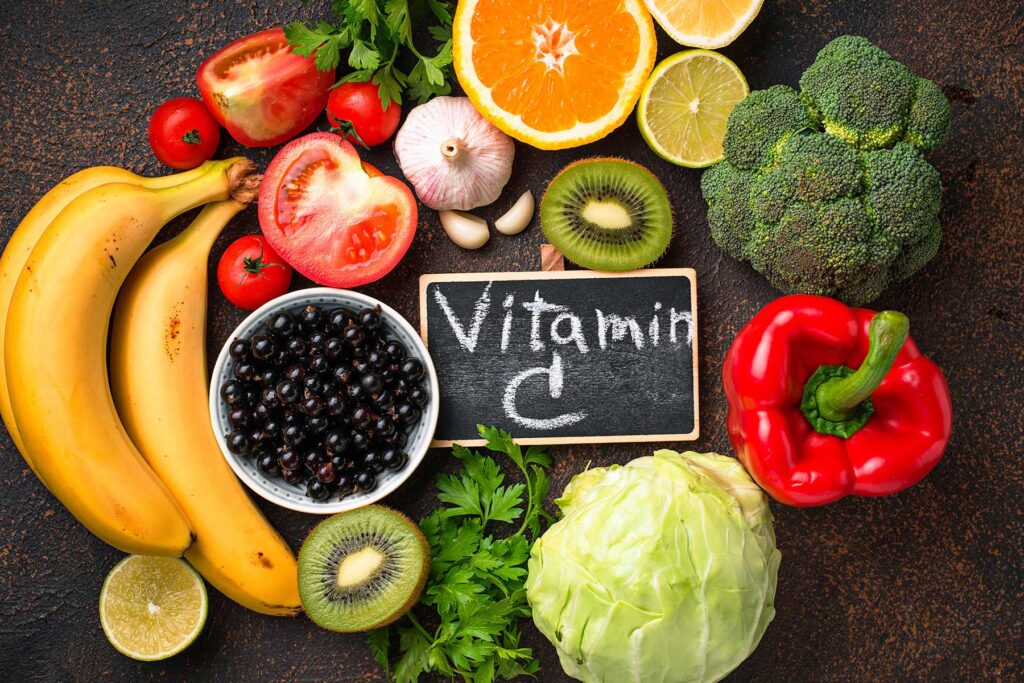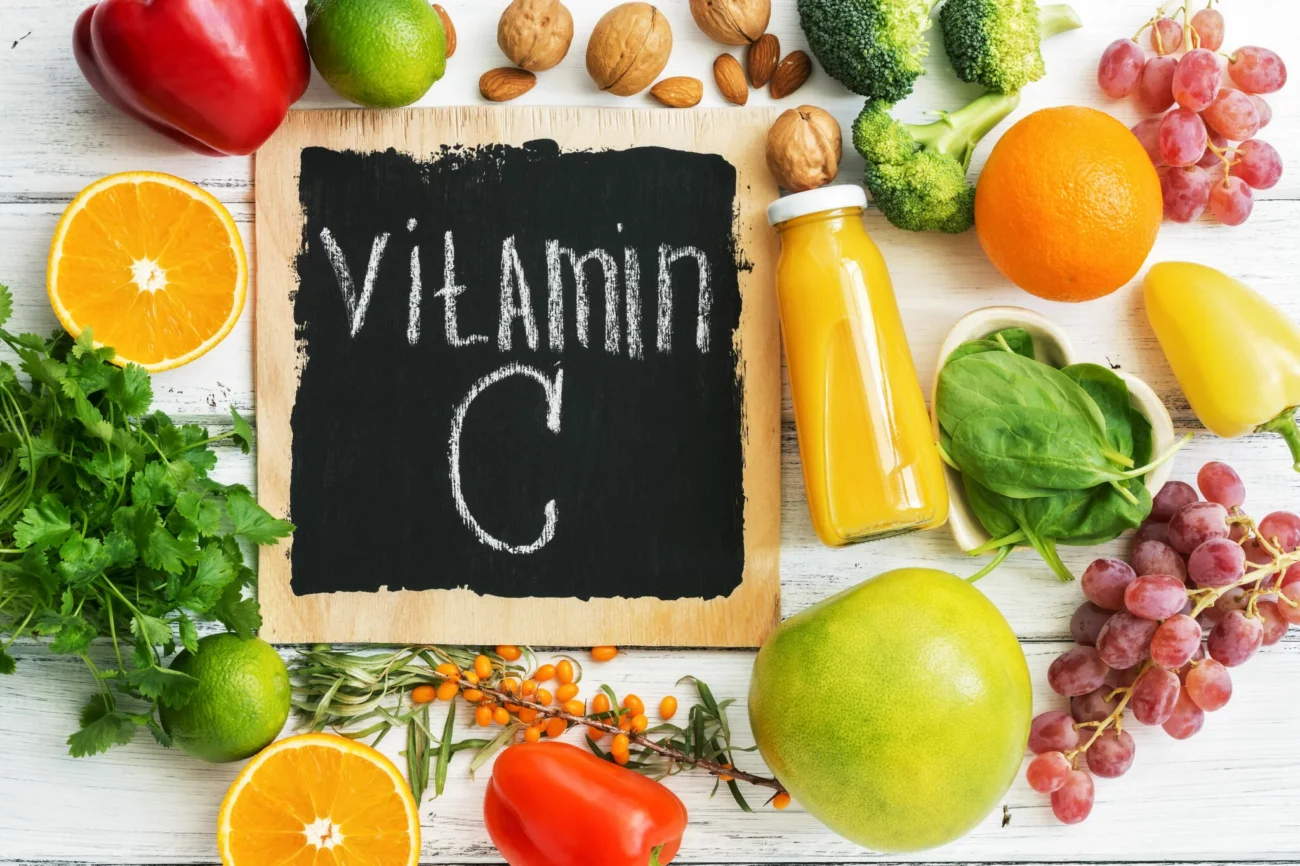Vitamin C, also known as ascorbic acid, is one of the most well-known and essential nutrients for human health. This water-soluble vitamin plays a critical role in immune function, skin health, and overall well-being. While it’s commonly associated with preventing colds, its benefits go far beyond that.
However, like any nutrient, it’s important to understand the recommended doses, benefits, and potential risks of vitamin C to use it effectively and safely.
In this blog post, we’ll dive into everything you need to know about this powerhouse vitamin.
What is Vitamin C?
Vitamin C is a water-soluble vitamin, meaning it dissolves in water and is not stored in the body. This makes it essential to consume it regularly through diet or supplements. It acts as a powerful antioxidant, protecting cells from damage caused by free radicals, and is involved in numerous bodily functions, including collagen synthesis, wound healing, and immune support.
Recommended Daily Doses of Vitamin C
The recommended daily allowance (RDA) for vitamin C varies by age, gender, and life stage. Here are the general guidelines according to the National Institutes of Health (NIH):
- Adults (19+ years):
- Men: 90 mg per day
- Women: 75 mg per day
- Pregnant women: 85 mg per day
- Breastfeeding women: 120 mg per day
- Smokers: An additional 35 mg per day (due to increased oxidative stress)
For most people, these amounts can be easily achieved through a balanced diet rich in fruits and vegetables. However, some individuals, such as those with certain medical conditions or limited dietary variety, may benefit from supplementation.
Top Benefits of Vitamin C
Vitamin C is a multitasking nutrient with a wide range of health benefits. Here are some of the most notable:
1. Boosts Immune System
- Vitamin C supports the production and function of white blood cells, which are essential for fighting infections.
- It also enhances the skin’s defense system and promotes wound healing.
2. Acts as a Powerful Antioxidant
- Vitamin C neutralizes free radicals, reducing oxidative stress and lowering the risk of chronic diseases like heart disease and cancer.
3. Promotes Skin Health
- As a key component of collagen synthesis, vitamin C helps maintain skin elasticity, reduce wrinkles, and protect against UV damage.
4. Enhances Iron Absorption
- Vitamin C improves the absorption of non-heme iron (the type found in plant-based foods), making it especially important for vegetarians and vegans.
5. Supports Heart Health
- Studies suggest that vitamin C may help lower blood pressure, reduce LDL (bad) cholesterol, and improve overall cardiovascular health.
6. Aids in Wound Healing
- Vitamin C is essential for collagen production, which is crucial for repairing tissues and healing wounds.
7. May Reduce the Risk of Chronic Diseases
- Its antioxidant properties help protect against conditions like cataracts, gout, and certain cancers.
8. Improves Mood and Cognitive Function
- Vitamin C plays a role in the production of neurotransmitters like serotonin, which can help regulate mood and reduce stress.
Food Sources of Vitamin C
Vitamin C is abundant in many fruits and vegetables. Some of the best sources include:
- Citrus fruits (oranges, grapefruits, lemons, limes)
- Bell peppers (especially red and yellow)
- Strawberries
- Kiwi
- Broccoli
- Brussels sprouts
- Tomatoes
- Spinach
- Papaya
- Guava
Risks and Side Effects of Vitamin C
While vitamin C is generally safe, excessive intake can lead to side effects. Here’s what to watch out for:
1. Digestive Issues
- High doses of vitamin C (typically above 2,000 mg per day) can cause stomach upset, diarrhea, and nausea.
2. Kidney Stones
- Excessive vitamin C intake may increase the risk of kidney stones in susceptible individuals, as it can be converted into oxalate in the body.
3. Iron Overload
- Vitamin C enhances iron absorption, which can be problematic for people with conditions like hemochromatosis (excess iron storage).
4. Interference with Medical Tests
- High doses of vitamin C can interfere with certain medical tests, such as blood glucose tests and stool tests for occult blood.
5. Drug Interactions
- Vitamin C may interact with certain medications, including chemotherapy drugs, statins, and blood thinners. Always consult your doctor before taking supplements if you’re on medication.
Who May Need Vitamin C Supplements?
While most people can meet their vitamin C needs through diet, certain groups may benefit from supplementation:
- Smokers or those exposed to secondhand smoke
- Individuals with limited dietary variety
- People with malabsorption conditions (e.g., Crohn’s disease)
- Those recovering from surgery or illness
- Older adults with reduced nutrient absorption
Tips for Maximizing Vitamin C Intake
- Eat Fresh and Raw: Vitamin C is sensitive to heat and light, so consume fruits and vegetables raw or lightly cooked.
- Store Properly: Keep vitamin C-rich foods in a cool, dark place to preserve their nutrient content.
- Pair with Iron-Rich Foods: Combine vitamin C-rich foods with plant-based iron sources (e.g., spinach with lemon juice) to enhance absorption.
- Avoid Over-Supplementation: Stick to the recommended doses unless advised otherwise by a healthcare professional.

Vitamin C is a vital nutrient with a wide range of benefits, from boosting immunity and promoting skin health to supporting heart health and wound healing. While it’s easy to get enough vitamin C through a balanced diet, supplements can be helpful for certain individuals. However, it’s important to avoid excessive intake to prevent potential side effects. By understanding the recommended doses, benefits, and risks, you can make the most of this essential vitamin for optimal health.
Do you have a favorite vitamin C-rich food or supplement?
Share your thoughts and tips in the comments below! 🍊

